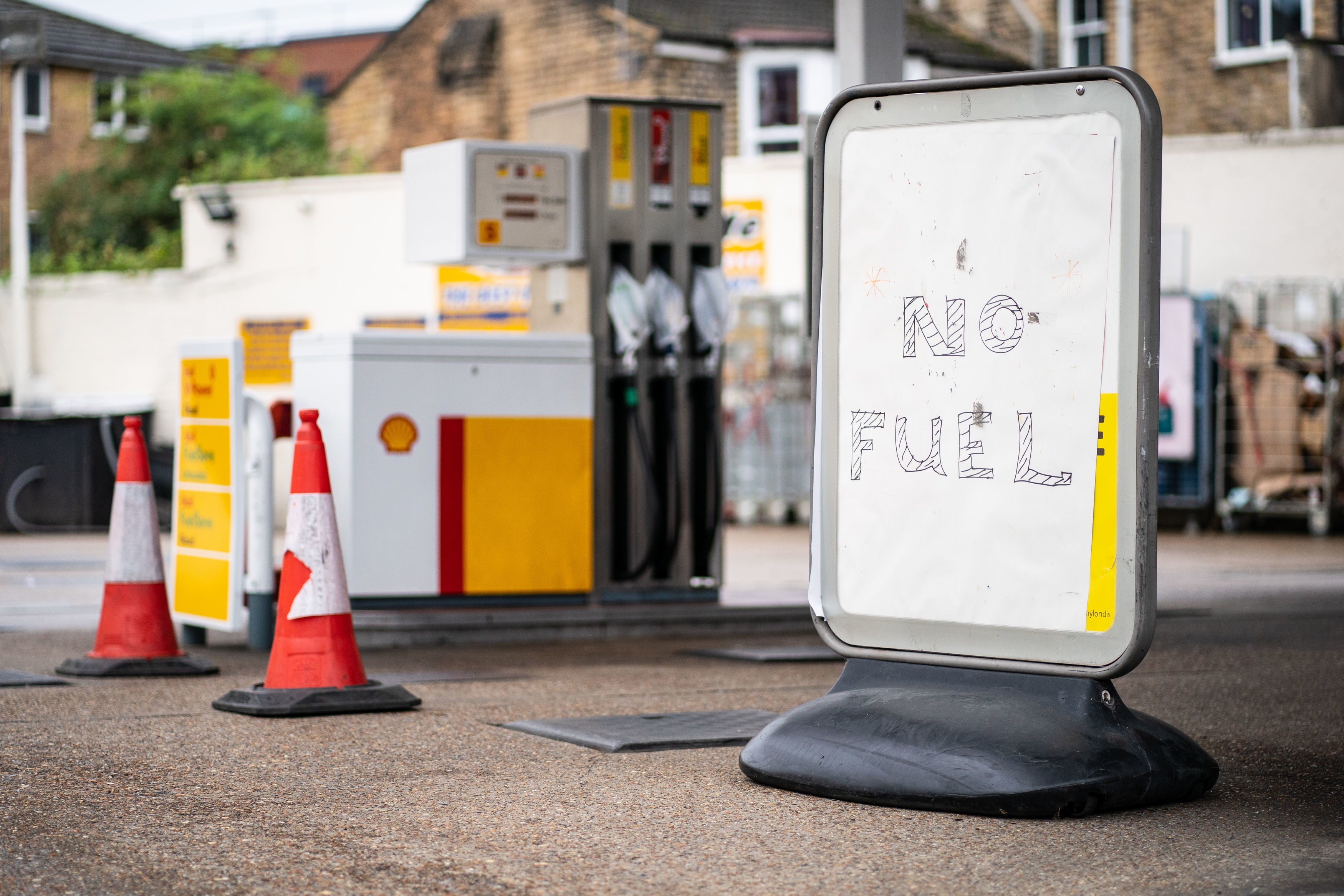Goods and staff shortages not a ‘70s-style crisis, just ‘an extremely interesting moment’, Boris Johnson says
Prime minister calls lack of labour ‘a sign of economic robustness’ – despite fears of empty shelves at Christmas

Your support helps us to tell the story
From reproductive rights to climate change to Big Tech, The Independent is on the ground when the story is developing. Whether it's investigating the financials of Elon Musk's pro-Trump PAC or producing our latest documentary, 'The A Word', which shines a light on the American women fighting for reproductive rights, we know how important it is to parse out the facts from the messaging.
At such a critical moment in US history, we need reporters on the ground. Your donation allows us to keep sending journalists to speak to both sides of the story.
The Independent is trusted by Americans across the entire political spectrum. And unlike many other quality news outlets, we choose not to lock Americans out of our reporting and analysis with paywalls. We believe quality journalism should be available to everyone, paid for by those who can afford it.
Your support makes all the difference.Boris Johnson has dismissed warnings of a 1970s-style economic crisis, describing the current goods and staff shortages as “an extremely interesting moment”.
Despite growing fears of empty shelves at Christmas, the prime minister insisted the lack of labour – blamed for the scarcity of fuel and some foods – was “a sign of economic robustness”.
He again ruled out a loosening of immigration rules to ease the problems, accusing businesses of being able to “mainline low wage, low cost, immigration” through EU membership.
Labour said the prime minister was “so out of touch that he can’t see a crisis when it’s staring him in the face”.
On Monday, Next chief and Brexit supporter Lord Wolfson, warned of goods and staff shortages triggering a wage and prices spiral and 1970s-style high inflation.
But, asked if there is a crisis, Mr Johnson replied: “No”, while admitting there are “clearly stresses and strains” affecting the economy.
He said: “I think that it’s an extremely interesting moment”, adding it was “a sign of economic robustness that the market is demanding labour in the way that it is”.
The Conservatives have used their party conference to go to war with business, the prime minister insisting it is their job to fix problems in supply chains.
Amid growing nervousness that companies will be able to find the staff they need, Mr Johnson was asked “do you believe that this is a crisis”, but told BBC Radio 4: “No.”
“On the contrary, what you’re seeing with the UK economy – and indeed the global economy – is very largely, in the supply chains, the stresses and strains that you’d expect from a giant waking up.”
Mr Johnson pointed to soaring gas prices and “the global shortage of lorry drivers”, saying: “These are some of the issues that we’re going to fix.”
The Times reported that just 27 fuel tanker drivers from the EU have applied to work in Britain under the government’s emergency scheme to recruit 300, to tackle the petrol crisis.
But Mr Johnson said that was incorrect, stating the figure is 127 – ahead of a further 4,700 on offer, under a slightly different scheme.
“It’s a fascinating illustration of the problem of the shortage,” the prime minister told BBC Breakfast.
“What we said to the road haulage industry was ‘fine, give us the names of the drivers that you want to bring in and we will sort out the visas’, he said.
“They only produced 127 names so far. What that shows is the global shortage.”
Holding firm on immigration, the prime minister said: “I’ve always been in favour of people who had talent and industry coming to this country I want to to see that.
But he added: “What you saw in the last 20 years or more, there’s been an approach whereby a business of many kinds was able to mainline low wage, low cost, immigration for a very long time.
“And in some ways that, of course, worked well – the people who came were fantastic hardworking people and did a wonderful job – but what that resulted in was the suppression, not just pay, but also of conditions.”
Labour Party chair Anneliese Dodds said:“Boris Johnson is so out of touch that he can’t see a crisis when it’s staring him in the face.
“Try telling the teacher who couldn’t get into school because she couldn’t find petrol that there’s no crisis.
“Or the social care worker who will lose £1,000 a year when the government cuts Universal Credit tomorrow, and worrying if he can afford to heat his house.
“The chaos millions of working people are currently facing hasn’t come about by chance. It’s a crisis made in Downing Street, and it’s the prime minister’s responsibility to sort it out.”
Join our commenting forum
Join thought-provoking conversations, follow other Independent readers and see their replies
Comments